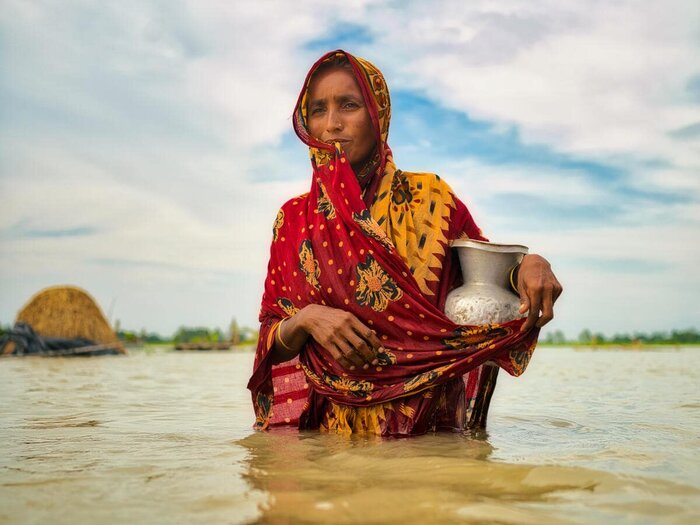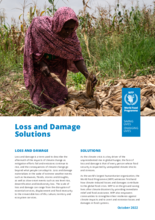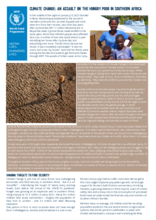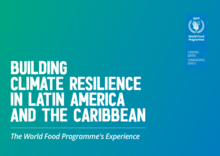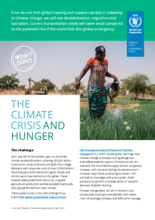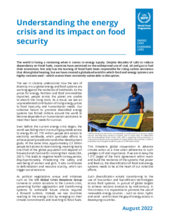Climate action
- Over 15 million
- people benefiting from climate risk management solutions
- Nearly 4 million
- people protected with climate insurance in 2022
- Over 3.2 million
- people protected with anticipatory actions and early warnings in 2022
Every inhabited region of the world is experiencing the effects of climate change, which is one of the main drivers of global hunger. Over the past decade, 1.7 billion people have been affected by extreme weather and climate-related disasters. Communities who contribute the least to the climate crisis are bearing the brunt of its impacts, with limited means to cope.
With the vast majority of the world’s hungry exposed to climate shocks and stresses, eradicating hunger requires bold efforts to improve people’s ability to adapt. If we don’t help communities adjust to the new reality of the climate crisis, hunger and malnutrition will increase.
The World Food Programme (WFP) is helping food insecure communities to prepare for, respond to, and recover from climate shocks and stresses. WFP saves lives following climate-related disasters. WFP also implements climate risk management solutions in 42 countries, benefiting more than 15 million people.
WFP programmes support countries and communities to
Anticipate
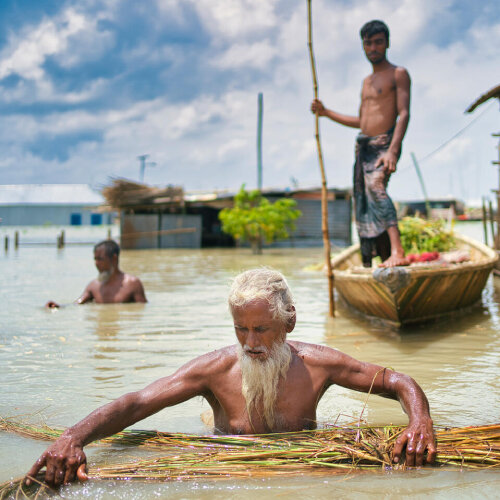
Anticipate climate hazards before they turn into disasters.
Through its Anticipatory Action programme, WFP helps countries and communities to develop early-warning systems to trigger humanitarian action before extreme weather events impact vulnerable families, allowing them to take preventive action such as evacuating assets and livestock, reinforcing their homes and buying food and other essential items.
WFP also provides climate information to smallholder farmers, as well as providing analysis to vulnerable countries on the links between food security and climate risk.
Restore
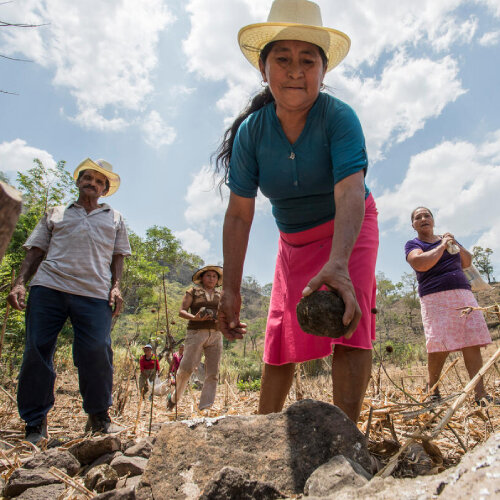
Restore degraded ecosystems as natural shields against climate hazards.
Nature itself is often the best way to protect both people and planet. Rehabilitating ecosystems helps to reduce people’s vulnerability to climate shocks and stresses while also protecting biodiversity and promoting social cohesion. Up to 2021, WFP has rehabilitated 1.6 million hectares of degraded land, built 111,000 water ponds and planted 60,000 hectares of forests.
Protect
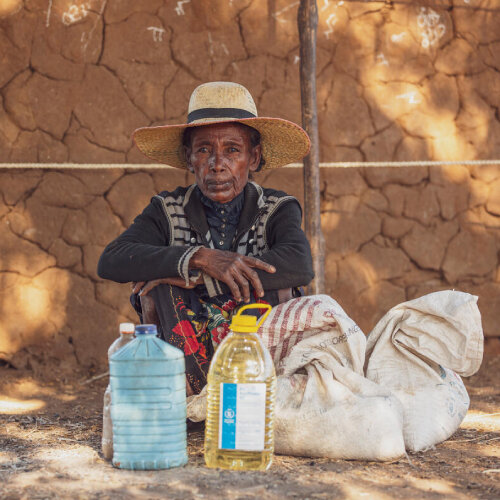
Protect the most vulnerable with safety nets and insurance against climate extremes.
WFP enables communities to withstand shocks through climate risk insurance – which provides people with cash payouts following a climate-related disaster. In 2022, nearly four million people in 19 countries were protected by climate risk insurance solutions developed or supported by WFP.
Find out more about Risk Management, Insurance and Finance.
Energize

Support schools and communities to access sustainable energy solutions.
WFP promotes clean and modern cooking solutions to households and schools. Improving efficiency and reducing pollution, these help to prevent the negative impacts of traditional cooking on the environment, economic development, and public health.
WFP works with smallholder farmers to disseminate sustainable energy equipment and services that boost food production (e.g. solar pumps), processing (e.g. solar mills) and preservation (e.g. solar fridges), as well as limiting post-harvest losses.
In 2022, WFP enabled over 1.6 million people to access sustainable energy products and services in 18 countries.
Related topics
In focus
Ethiopia: WFP responds as the worst drought in a lifetime intensifies hunger
Story | 24 February 2022
4 ways the World Food Programme helps people adapt to climate change
Story | 22 February 2022
Climate crisis: COP27 and other things to watch in 2022
Story | 14 January 2022
Dune-fixing in Madagascar: A line in the sand for extreme weather
Story | 17 December 2021
Act now on climate crisis or millions more will be pushed into hunger and famine
Story | 18 November 2021
South Sudan: How WFP is working with farmers to counter climate change
Story | 1 November 2021
What is COP26? The big UN climate change summit for beginners
Story | 21 October 2021
Opinion: Why the UN’ s ‘Code Red’ climate change warning is already a reality for many
Story | 11 August 2021

